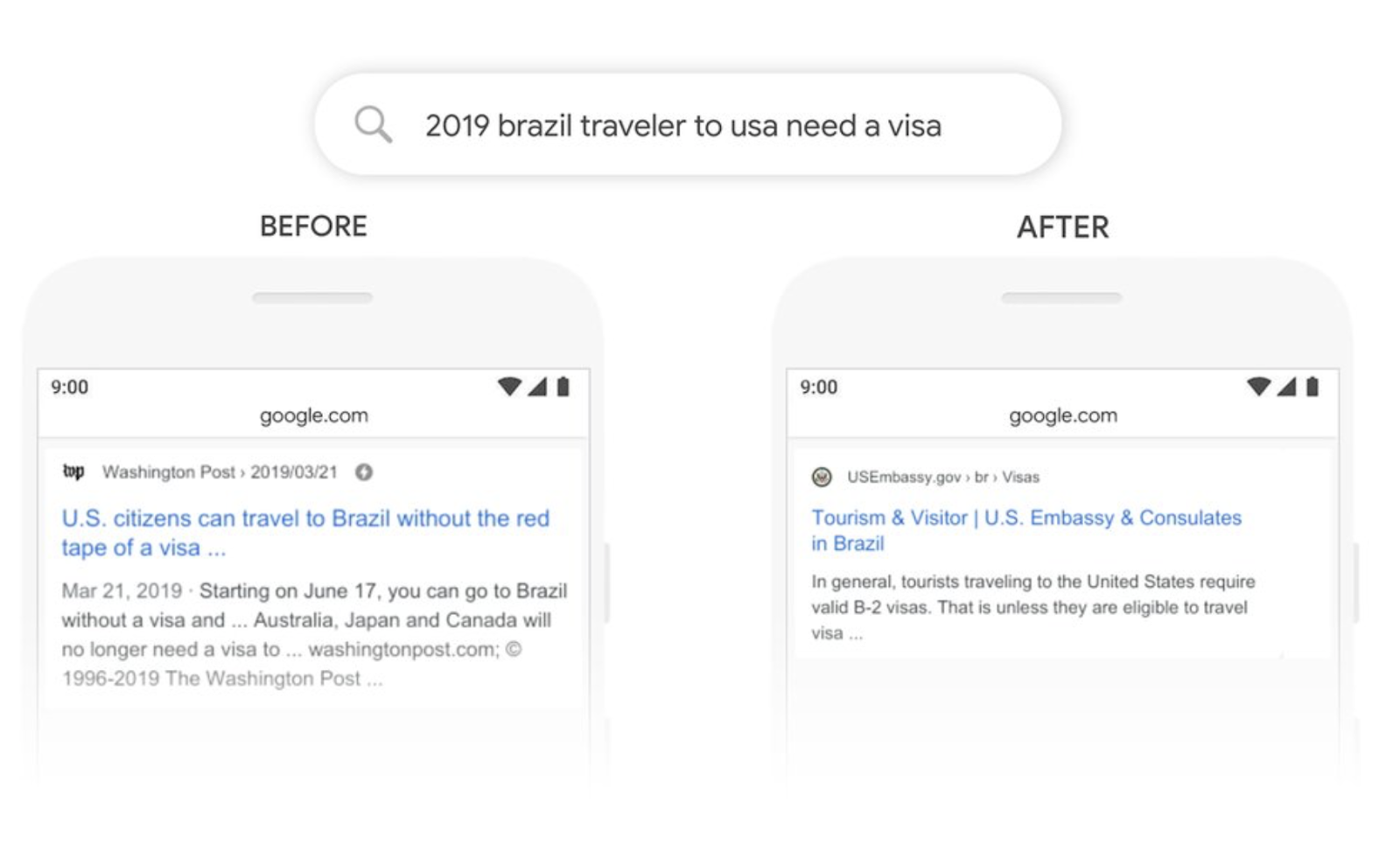
Everything you need to know about Google BERT
Jason RoyLast month, in October, Google made a big announcement that had the SEO world talking. Google announced its latest big change in the Google search engine ranking algorithm, BERT.
BERT stands for Bidirectional Encoder Representations from Transformers. It’s a mouthful, but it is not that difficult to understand.
In this blog post, we will explain everything you need to know about Google’s latest algorithm update — Google BERT. We will also discuss how it works, its potential impact on websites and their search engine rankings, and what content marketers and SEO professionals can do to ensure that their websites do not take a hit.
Is BERT a big deal?
First of all, let’s get the main part out of the way.
Every now and then, Google introduces an algorithm update that shakes the search engine optimization world. In the past, we have seen such examples in the form of Google Panda, Google Penguin, and the Hummingbird update.
Google BERT can be a big deal because it is the natural next step in the evolution of search engines, AI, and machine learning. However, if you have been following the best SEO practices for your website, you do not have to worry about it too much.
Now with that out of the way, let’s explain what BERT actually is and what it does.
What is Google BERT?
This is how Google itself explained BERT.
“Unlike recent language representation models, BERT is designed to pre-train deep bidirectional representations from unlabeled text by jointly conditioning on both left and right context in all layers.
As a result, the pre-trained BERT model can be fine-tuned with just one additional output layer to create state-of-the-art models for a wide range of tasks, such as question answering and language inference, without substantial task-specific architecture modifications.”
So, how does Google BERT work?
Google BERT helps the Google search engine better understand the queries that searchers use. BERT does it by helping Google understand the subtle nuances and context of the search query better than ever before.
In the SEO world, those “nuances and context” are more commonly referred to as the user’s search intent.
This will have a few different benefits for everyone:
- It will make Google a better search engine. In the search engine wars, Google will gain a competitive advantage over other search engines that are not using the BERT technology.
- Second, since Google would be able to better understand the user’s search intent, it would present more accurate and relevant results that would benefit users.
- Ultimately, it will cut down the time online searchers spend browsing through the search engine results pages to find the result they want.
Here is an excellent example that Google showed us.
In the above example, the search query is “2019 brazil traveler to USA need a visa.” You can easily guess by looking at the search query that the user is most probably a Brazilian traveler looking to get a US visa in 2019.
But Google didn’t really understand that — not until BERT.
In the left image, you can see that Google returned with a news article about U.S. citizens wanting to visit Brazil. But that’s not our searcher wanted, right?
After Google BERT, however, Google was able to understand the search query in a much better way. Consequently, in the search engine results, it returned with a link to the US Embassy website that details all the requirements for travelers looking to visit the United States of America.
This result is more relevant and would be much more helpful than the first one.
This is Google BERT in action.
What are Google BERT’s targets?
At the moment, Google has estimated that BERT will affect approximately 10 percent of all search queries in the English language. While 10 percent may not seem big, it is significant and will have a noticeable impact on SEO and how SEO professionals and content marketers approach website optimization.
Google also mentioned that BERT would especially target “longer, more conversational queries” — which may mean Q&A pages and long-tail keywords.
What SEOs and content creators can do
Now, here comes the most important part.
As an SEO or content marketer, what can you do to make sure Google BERT does not have a negative impact on your website’s search engine rankings and, instead, help your website improve in the SERPs?
Here are a few steps you can take:
1. Understand your audience and their search queries
Google BERT is all about presenting the most accurate, helpful, and relevant results to online searchers. Unless you understand who your audience is, what they want, what their questions are, and how they search, you won’t be able to think like them and give them the answers they seek.
Understanding your audience, therefore, is the first and most crucial step here.
Dive into your Google Analytics account, explore the Audience and Behavior reports, and learn as much as you can about your website visitors and how they engage with your content.
It is also recommended that you create audience personas to fully understand the different types of audiences your website attracts.
2. Create detailed and helpful content
Once you understand your audience, the next step is to create detailed and extremely helpful content for your website visitors.
Long-form content that is free of fluff and filler information and answers questions clearly and comprehensively will do even better in the post-BERT era.
3. Try the pillar-and-cluster content strategy
The pillar and cluster content strategy has been working for many online websites. HubSpot also recently adopted this strategy and saw great results. It is also expected to work well in the post-BERT era.
In this strategy, you can create a pillar content (main long-form piece) on a broad topic. Then you shortlist several related subtopics and create a relatively smaller blog post on each of them. In the end, you interlink the cluster posts with the main pillar content and vice versa.
The idea is that each post covers a topic or subtopic in detail, so there is always something to rank in the SERPs for a relevant query.
4. Follow Google webmasters quality guidelines
It is obvious, but it is important enough to mention anyway.
Make sure you are following the Google webmaster quality guidelines and the E-A-T content guidelines. It is to ensure that you are not doing anything that Google explicitly prohibits.
5. Use long-tail keywords
Google BERT will target long-tail keywords and conversational queries. This may present an opportunity to create more relevant and helpful content with long-tail keywords.
Long-tail keywords usually explore a subtopic in detail, which allows for more fleshed out and informative blog posts. This is something that can be leveraged for better search engine rankings.
Learn more long-tail keywords here.
What’s next?
As mentioned earlier, if you have been following the best SEO practices and creating relevant and helpful content for your readers, you do not have to worry about Google BERT.
Here is what Google’s Danny Sullivan said about Google BERT and its possible impact.
Keep producing excellent content, understand your target audience and website visitors and give them what they want, use familiar terms and keywords in the right places in your content that the online searchers are also using.
We believe that Google BERT is the next step in search engine evolution, and it will play a big role in how search engines understand search queries and present website results to online users.
If SEOs, content creators, and webmasters want to stay ahead of the curve, they will have to be more helpful to their readers with their website content, keyword usage, and high-quality and informative content. Use the tips mentioned in this article, and you will be fine.
If you have any questions, feel free to comment below.
- Pricing
- Free Tools
- Articles
- Login
- Free 7-Day Trial